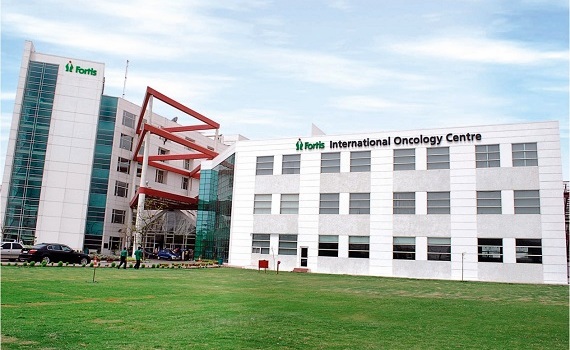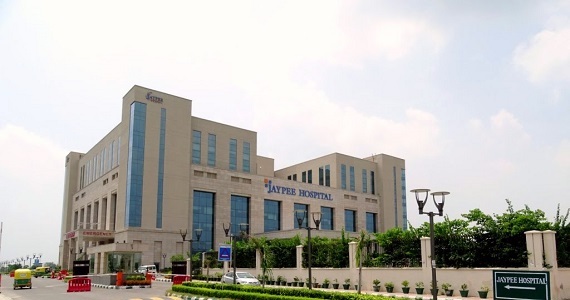Intensity-modulated radiation therapy (IMRT) Treatment in India
treatment
starting from
Introduction:
Intensity-Modulated Radiation Therapy (IMRT) is a sophisticated and highly precise radiotherapy technique used in the treatment of cancer. It allows radiation oncologists to deliver high doses of radiation to cancerous cells while minimizing exposure to surrounding healthy tissues. IMRT is particularly effective for treating tumors located near critical organs or structures, reducing the risk of side effects and improving treatment outcomes. This article explores the principles, symptoms, causes, treatment, benefits, cost in India, and the significance of IMRT in the fight against cancer.
Principles of Intensity-Modulated Radiation Therapy: IMRT uses advanced computer software to control the intensity and direction of multiple radiation beams, enabling personalized treatment plans for each patient. The primary goal of IMRT is to precisely shape the radiation dose to match the tumor's contours while sparing nearby normal tissues. This is achieved through the modulation of radiation intensity, allowing higher doses to be delivered to the tumor and lower doses to be delivered to healthy tissues.
Symptoms and Causes of Cancer:
Cancer is a complex and diverse group of diseases characterized by the uncontrolled growth and division of abnormal cells. Common symptoms of cancer may include:
- Unexplained weight loss
- Fatigue and weakness
- Persistent pain in specific areas
- Changes in the skin, such as dark spots or changes in moles
- Persistent cough or hoarseness
- Changes in bowel or bladder habits
- Difficulty swallowing
- Abnormal bleeding or discharge
The exact causes of cancer can vary, and it often results from a combination of genetic, environmental, and lifestyle factors. Genetic mutations, exposure to carcinogens (e.g., tobacco, radiation, certain chemicals), family history, and immune system dysfunction are among the known risk factors for cancer development.
Treatment:
Intensity-Modulated Radiation Therapy (IMRT): IMRT is a highly sophisticated form of external beam radiation therapy that uses advanced technology to precisely target and shape the radiation beams. The treatment process involves the following steps:
- Simulation and Treatment Planning: Before the actual treatment, the patient undergoes a simulation session, during which imaging scans (CT, MRI, or PET) are used to precisely map the tumor and surrounding structures. Highly specialized software is then used to develop a personalized treatment plan.
- Radiation Delivery: During the treatment, the patient lies on a treatment table, and a linear accelerator delivers radiation beams at various angles to the tumor. The intensity and direction of the beams are precisely controlled to maximize the dose to the tumor while minimizing exposure to healthy tissues.
- Fractionation: IMRT is typically administered in multiple sessions, known as fractions, over several weeks. Fractionation allows for a gradual and controlled delivery of radiation, reducing the risk of side effects and enabling healthy tissues to repair between treatments.
Benefits of Intensity-Modulated Radiation Therapy (IMRT):
IMRT offers several significant benefits compared to conventional radiation therapy techniques:
- Precise Targeting: IMRT's ability to shape and modulate radiation beams allows for precise targeting of tumors, minimizing damage to surrounding healthy tissues and critical organs.
- Higher Doses to Tumors: IMRT enables the delivery of higher radiation doses to cancerous cells, improving treatment effectiveness and tumor control.
- Fewer Side Effects: By sparing healthy tissues, IMRT reduces the risk of side effects typically associated with radiation therapy, such as skin irritation, bowel problems, and urinary complications.
- Treatment of Complex Tumors: IMRT is particularly beneficial for treating tumors located near critical structures, such as the brain, spinal cord, head and neck region, and prostate.
- Increased Treatment Efficacy: The precision of IMRT leads to better treatment outcomes, increased chances of local tumor control, and enhanced overall survival rates.
Cost of Intensity-Modulated Radiation Therapy (IMRT) in India:
The cost of IMRT in India can vary depending on several factors, including the type and location of the cancer, the number of treatment sessions required, and the healthcare facility's reputation and location. On average, the cost of IMRT in India ranges from ?1,00,000 to ?3,00,000 per course of treatment.
Conclusion:
Intensity-Modulated Radiation Therapy (IMRT) is a cutting-edge radiation therapy technique that revolutionized cancer treatment. By precisely targeting tumors and minimizing exposure to healthy tissues, IMRT offers numerous benefits, including improved treatment outcomes, reduced side effects, and enhanced overall quality of life for cancer patients. As technology continues to advance, IMRT is becoming more accessible and increasingly integrated into cancer treatment protocols. In India, where healthcare costs can be a concern for some patients, the availability of IMRT at varying price points in different regions makes this advanced treatment option more widely accessible to those in need. Overall, IMRT continues to play a pivotal role in the fight against cancer, providing hope and improved outcomes for patients and their families.
How It Works
Need help in organizing medical travel to India?














